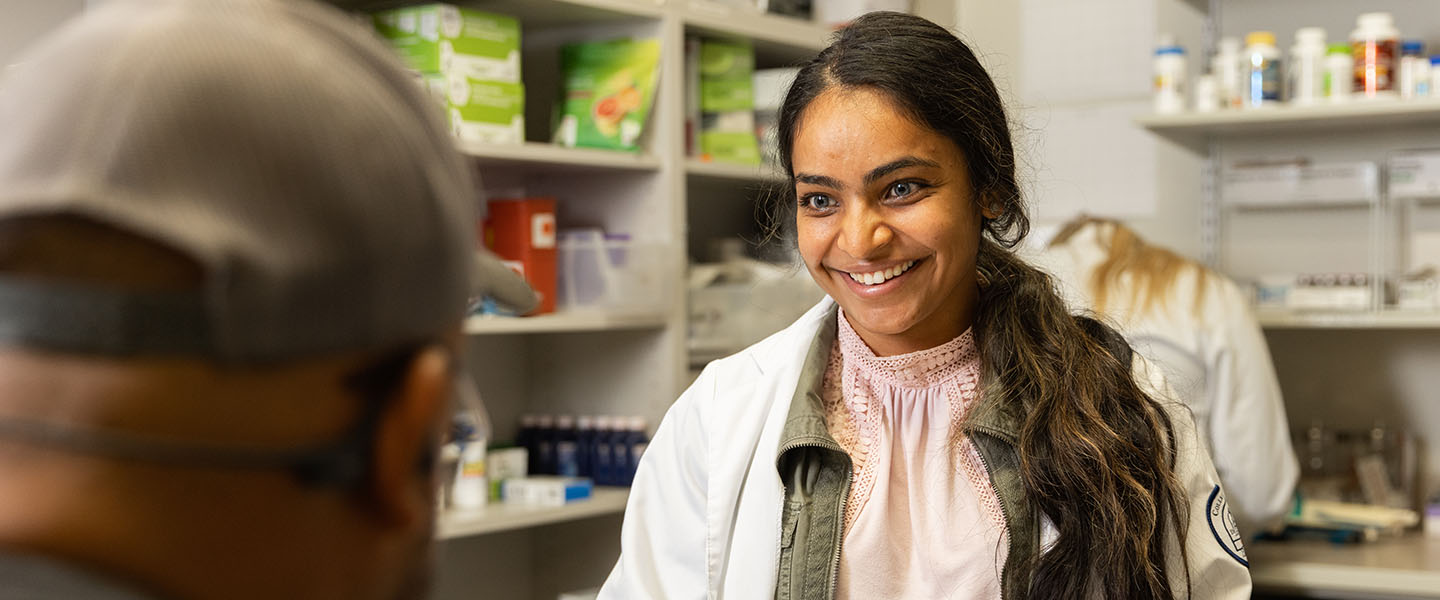Firmly grounded in basic sciences with consideration for the whole patient
The Frist College of Medicine is committed to educating excellent future clinicians whose knowledge and clinical decision-making are firmly grounded in basic sciences and who consider the whole patient, with a deep and nuanced understanding of the socioeconomic and systems factors that affect health care. The M.D. curriculum features three distinct phases that comprise the four years of medical school: the foundation phase (years 1 and 2), the clerkship phase (year 3), and the individualization phase (year 4).
Foundation Phase
The Foundation Phase will last approximately 18 months. Our guiding principle is to have no separation between basic sciences and clinical medicine. Faculty will team teach most courses, with core clinician educator and scientist educator faculty developing learning experiences and teaching side-by-side in large and small-group settings. Emphasis will be on active and self-directed learning and weekly simulation learning experiences. The centerpiece of the curriculum is clinical relevance. Weekly clinical cases will feature basic and clinical science principles in the context of social determinants of health and the humanities. Students will have early exposure to patient care. Close attention from core faculty and emphasis on the wellness of students will assist students in flourishing during their training.
Required courses include:
The organ system-based courses will integrate foundational, clinical, and social sciences to ground clinical care and decision-making. The organ system-focused series of courses will be case-based in their approach. Specific basic science disciplines will be addressed relative to their clinical applications. Through faculty-facilitated small groups and applying independent and self-directed learning principles, students will develop learning goals, identify and evaluate information resources, share their knowledge with peers, and receive feedback from faculty on their self-directed learning and skills for critical appraisal of information resources. Cases will include topics that address the basic sciences, longitudinal curricular threads, social determinants of health, and ethical issues.
In the ICP longitudinal course series, students will learn the basics of clinical medicine through extensive use of simulation with standardized patients and didactic instruction from core clinician educators. Students will develop evidence-based skills of critical judgment and medical problem-solving necessary to actively participate in evaluating real patients within the clinical setting. A central component of this course is the Longitudinal Clinical Experience preceptorship, in which students will actively participate in a primary care clinic one half-day per week. Early immersion into the clinical setting provides students with an opportunity to link didactic knowledge with real-world applications. Students will rotate among outpatient internal medicine, family medicine, and pediatrics clinics, with core preceptors providing key evaluative feedback.
Medical students will learn the basics of clinical medicine in small group settings with core clinician educators. Simulation learning, standardized patient education, and interprofessional education, and service-learning activities will be core components of the ICP course series.
The Social and Spiritual Foundations of Health longitudinal course series connects medical ethics, spirituality, health systems science, health equity, advocacy, literacy, education, and anti-racism (HEALER) to the student experience in didactic and experiential settings. Students explore societal and spiritual dimensions impacting patient health to facilitate the moral formation of physicians who utilize a whole-person approach to medicine. Students apply ethical and spiritual principles to the practice of medicine to cultivate virtuous medical practice and evaluate clinical ethical dilemmas. Students will reflect on clinical experiences to identify how their cultural beliefs and practices affect how they relate and provide care to diverse patient populations.
Clerkship Phase
The Clerkship Phase is 12 months in duration and consists of six core clerkships. Before starting clerkships, an orientation week will be dedicated to Transition to Clerkships. Subsequently, during this phase, students will return for one week to the FCoM campus after each core clerkship for an ICP 3 focus weeks that emphasizes whole-person care and interprofessional education.
Individualization Phase
The Individualization Phase will occur during two periods, allowing students to individualize their studies. The first period is an eight-week block between the first and second years of Phase 1 (foundation phase). Students can complete up to 2 non-clinical or research electives during the first period.
The second period begins immediately after completing the core clerkships and comprises advanced clinical rotations, electives, and a Transition to Residency capstone course. This period will consist of 13 one-month course blocks.
The curriculum will culminate in a month-long Transition to Residency capstone course to bring students together and reinforce and develop critical skills for internship. This capstone will have general and specialty-specific sessions and revisit many of the themes covered in the prior ICP course series. Students will be able to present scholarly work, including research and service projects, this month.
Contact Us
Thomas F. Frist, Jr. College of Medicine
1900 Belmont Boulevard
Nashville, TN 37212
Phone: 615.460.6191

